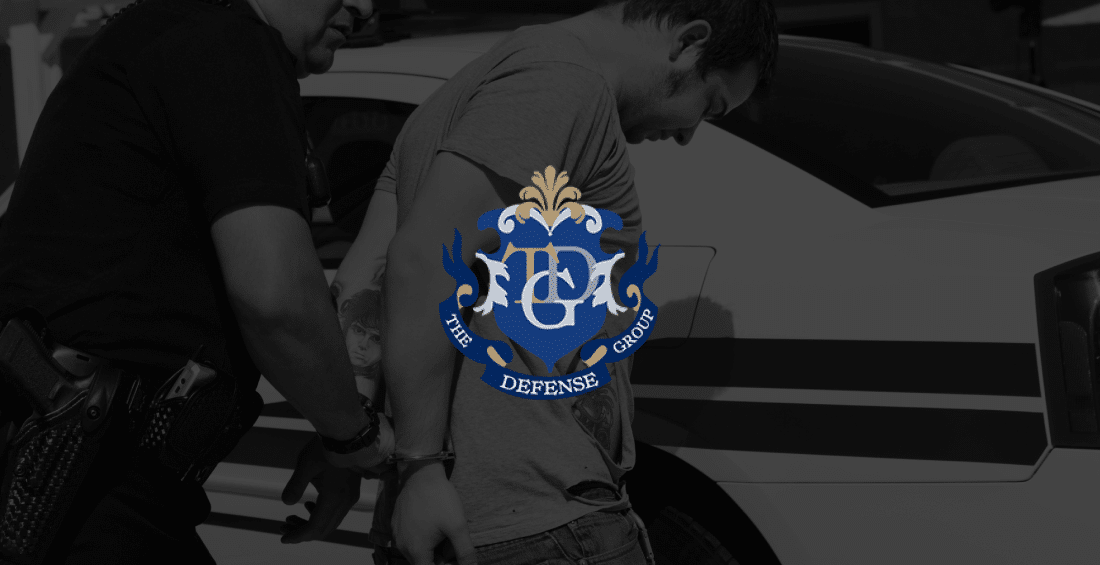DUI ADMINISTRATIVE SUSPENSIONS
How do administrative suspensions work?
The information below is intended to familiarize you with the administrative process that usually proceeds at the same time as your judicial (criminal) charges on a DUI. It is provided for your general information. If you have any questions, you should ask an experienced Central Florida DUI Defense Attorney at The Defense Group when you come in for your free consultation.
Administrative Suspensions come in two ways:
- Refusing to take a breath test, and
- Having an unlawful breath/blood alcohol level (UBAL)
Suspension begins on the date of the arrest in both cases.
Length of Suspensions
Refusal suspensions
First refusal – 12 months
Second / subsequent – 18 months
UBAL
First – 6 months
Second / subsequent – 12 months
Your Uniform traffic citation is a 10-day permit as longs as you have a valid DL. If the driver’s license is already suspended for any reason in this or any other state, the hard suspension begins on the day of the arrest. Hardship availability is subject to the rules below.
Two types of Hearings at DMV
- Formal Review hearing – to determine if the suspension is lawful; hearing must be requested within 10 days of arrest or waived.
- Hardship hearing – to see if the DMV will allow them to drive on a limited basis
Another Option:
You may now waive your formal review hearing and avoid the risk of a “hard suspension” of 30-90 days. You can register for the DUI Counterattack School, take your receipt to DMV along with your arrest report, and request a Temporary Driver’s License that will be good until your case is disposed of.
Hardship driving availability
If a formal review is requested on either suspension, assuming the driver’s license is otherwise valid, the DMV will allow driving on a limited basis until they have made a decision to either allow the suspension to stand as lawful or set aside the suspension. The DMV will forward the temporary permit to us, along with the date for the Formal Review hearing. We will then forward it to the driver.
This permit will not be issued by the DMV if you are suspended for any reason in this or any other state. If that is the case, the hard suspensions discussed below will take effect on the 11th day after the arrest. This generally occurs when the police allow the 10-day permit because they are not aware of any other suspensions on the day of the arrest because the computers were down or they didn’t check out-of-state suspensions.
If you do not request a Formal Review within the 10 days after your arrest, the hard suspension begins on the 11th day after the arrest.
If, after the Formal Review hearing, the DMV determines that the police have not provided you with enough information to support the suspension they will forward the driver’s license back to us for you to pick up. The suspension is then taken off their record. Hardship driving is not necessary at this point since the suspension has been removed from the record.
If the DMV determines that the police have provided enough information to support the suspension, a period of hard suspension will begin as of the effective date of the order which is usually the date the temporary permit expires (that is the one forwarded to the driver after the Formal Review was requested).
In the case of a UBAL suspension (regardless of whether first or not), the hard suspension is 30 days. That means that no driving is allowed. Hardship availability begins on the first day after the hard suspension ends, assuming you are otherwise eligible.
In the case of a first Refusal suspension, the hard suspension if for 90 days. Hardship availability begins on the first day after the hard suspension ends, assuming you are otherwise eligible.
In the case of a second or subsequent Refusal suspension, the hard suspension is for the entire 18 months. No hardship driving at all for the entire suspension period.
You are not eligible for a hardship license if you have two prior DUIs, two prior refusal suspensions or their driver’s license is suspended for any reason in this or any other state. You must not drink or drive during the hard suspension and show the DMV you are worthy of being granted the privilege of having your driver’s license back on a limited basis.
The Formal Review hearing
Florida statutes allow the arresting officer to “summarily suspend” the driver’s license of a person who is arrested for DUI and, either, refuses a breath, blood or urine test or who takes a breath or blood test and has an illegal blood/breath alcohol level. The person whose license is suspended may file a request with the DMV within 10 days of the suspension to have them review that suspension.
In the case of a Refusal suspension, the issues to be decided by the DMV are:
- Did the officer have probable cause for the arrest?
- Was the arrest lawful?
- Did the officer advise the driver of the suspension penalties properly?
- Did the driver refuse the test?
In the case of a UBAL suspension, the issues to be decided are:
- Did the officer have probable cause for the arrest?
- Was the arrest lawful?
- Did the driver’s alcohol level exceed the legal limit?
Some rules that apply
- All issues are decided by a Hearing Office of the DMV. In your criminal case, all legal issues will be decided by a judge. If your case goes to trial, a jury will decide whether you are guilty or not guilty of the DUI.
- All issues must be proven by a preponderance or greater weight of the evidence. If your case goes to trial, the DUI must be proved beyond a reasonable doubt.
The arresting or testing officer does not have to appear at the hearing unless subpoenaed by us. - Whatever is decided by the DMV has no bearing on the criminal case of DUI pending against you in County or Circuit Court. That means that the DMV could find insufficient evidence to support the license suspension and a jury could find you guilty of the DUI. The DMV could find sufficient evidence to support the suspension but the jury could find you not guilty of the DUI.
What we do to prepare for the Formal Review
Shortly after the request for a Formal Review, we make a request for all documents filed with the DMV by the arresting officer to support the suspension. These documents are reviewed by The DUI Defense Team members in the firm to determine if the suspension can be supported based on what has been provided the DMV.
If it is the conclusion of the Team that a defense can be argued by not subpoenaing the officers, then we will not do that and make our arguments based on what is in the DMV file and any testimony we may offer.
If it is decided that we need to subpoena an officer to support a defense to the suspension, then we will do that.
If it is ultimately decided that the officer has provided sufficient information to support the suspension and we have no defense to begin with, the general plan is to subpoena the officers to see if they show for the hearing. If they fail to show and do not show just cause for their failure, the suspension will be set aside. If they show, we will take their testimony regarding the lawfulness of the stop and arrest and probable cause. Their testimony may support grounds for setting the suspension aside and may be useful at a later date if suppression motions are filed in the criminal case.
The Interstate Driver’s Compact does not apply to pre-conviction administrative suspensions. But, a non-resident of Florida may still suffer a driver’s license suspension of their home state.
An experienced Central Florida DUI Defense Attorney can help. Call one of our two locations at 407 743 8430 or 407-250-9557, for a prompt and free consultationwith an experienced Central Florida criminal defense attorney at The Defense Group. We are available 24 hours a day for your emergency needs, and appointments can be arranged for nights or weekends if necessary.










